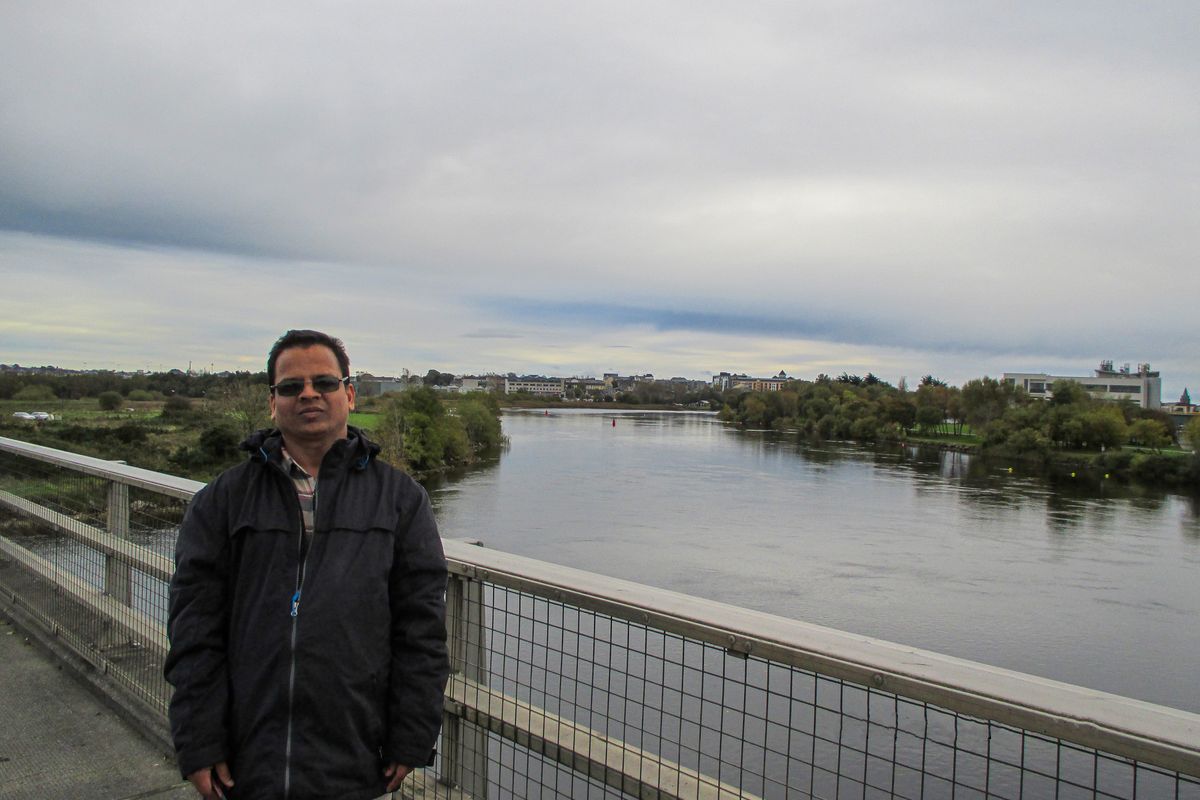
Writing journeys
11 MIN READ

This week, for Writing Journeys, series editor Tom Robertson asked contributors what they enjoy most about writing. Here are their answers.

Dear Saathi-haru,
In a couple of weeks we will complete one year of Writing Journeys at The Record. It has been a great journey! Many thanks to Pranaya Rana and his team at The Record. We have more journeys to highlight and more of Tom’s tips to share, so we will continue into our second year.
For the next few weeks, we will be celebrating the completion of our first full year and the beginning of our second. This week, we celebrate with an article called ‘The joy of writing’.
Writing is difficult and sometimes painful, but it’s also fun and rewarding. I asked our contributors, “What is the funnest part of writing? What makes it rewarding?” Here are their answers. I hope you enjoy them as much as I have.
Please don’t forget to subscribe to The Record and/or make a donation!
***
The part I like best is the part at the end, the last stage, when I know things will come together, and all I need to do is find the right words. Before that comes some fun stuff – I get excited at discovering new things, particularly a quotation or juicy fact around which I can easily build a paragraph – but mostly a lot of slow arduous effort when ideas don’t seem to pan out and words don’t come easily. But I keep pushing and eventually get to where all my ideas are in place and all I need to do is focus on sculpting and polishing my sentences and words. This is fun. I pick up each word and examine it from all sides, deciding whether it’s just what I want or not. If not, I throw it out, mercilessly. I tweak here and there, sometimes adding a few words, but mostly I cut, cut, cut. I love this part. I find tremendous joy in cutting away the clutter so that what remains is clear, compact, and compelling. It took me many years to learn that more is less, and less is more. So now I savor the feeling of getting something just right.
– Tom Robertson, series editor
Tom Robertson: 'Writing strategies in action'
*

I write to get things off my chest and sleep peacefully at night. Agreed, my writings probably give sleepless nights to others, but that is their problem! Writing helps me systematize my cluttered thoughts mixed with emotions, to separate logic from passion and put them together again to firm my position. Then I can move on ... to other things or even the same thing but intellectually better armed!
– Dipak Gyawali, by email
Dipak Gyawali: ‘The hours moved like lazy cattle across a landscape’
*
I can’t help quoting the American writer Marilynne Robinson: ‘The difficulty of it [writing] cannot be overstated. But at its best, it involves a state of concentration that is a satisfying experience, no matter how difficult or frustrating. The sense of being focused like that is a marvelous feeling.’ Ultimately, I suppose this meditative aspect of writing is what I value most about writing.
– Shradha Ghale, in
Shradha Ghale:‘I’m still learning to write, I guess the process never ends’
*
I write as I enjoy it as a meditative reflective exercise. For me, it is also a stress buster as the work I do wearing multiple hats requires me to take breaks at regular intervals. I write so that I am forced to read more and I read so that I can write. Further, people who read my pieces and books give me positive feedback that pushes me to write more, or they suggest improvements that help me to push myself to get better. The best part of writing is when you look back and think how on earth we were able to an article or book together. During times when one is feeling low, this thought just brings about a bout of energy to write more.
– Sujeev Shakya, by email
Sujeev Shakya: 'Shakespeare can be found in the fields of the Himalayan hills'
*
I realized that writing provides a voice to my feelings, gives meaning to my experiences, and adds value to my struggles. My writing is an expression of every fiber of my multifaceted being, and my struggles and past experiences.
– Kalpana Jha, in
Kalpana Jha: ‘Writing provides a voice to my feelings, and adds value to my struggles’
*
Writing is cathartic. Articulating complex ideas and emotions, and seeing them translated into words makes one feel human, real. We write to validate ourselves and to communicate what we believe is as yet unarticulated the way we want it to be. Humility and honesty are the essence of my writing.
– Akhilesh Upadhyay, by email
Akhilesh Upadhyay: ‘Reading gives us insight; writing makes us precise’
*

When I'm in flow, all is well with the world. I'm in harmony. As Mihaly Csikszentmihalyi wrote, “The best moments in our lives are not the passive, receptive, relaxing times … The best moments usually occur if a person’s body or mind is stretched to its limits in a voluntary effort to accomplish something difficult and worthwhile.”
When one's ideas are received by another and resonance is created, the heart becomes full.
– Niranjan Kunwar, by email
Niranjan Kunwar: ‘Even if words don’t come easily, I keep at it, trusting the process’
*
I am rarely thrilled while writing: it can be difficult, tedious, frustrating, and soul-destroying. But eventually the process gives you the gifts of discovery and intense absorption. Very little compares to working through a difficult piece and feeling your sense of time, self, meaning, and place shift.
– Anagha Neelakantan, in
Anagha Neelakantan: ‘Write because it makes you think or feel’
*

For me, the most interesting thing is being able to go to the countryside to collect writing materials. When I visit a new place, I am attracted to the landscape, the several styles of houses, and the irregular shapes of trees and plants. The people there captivate me, as do the language they speak, their life experiences, and the inherent knowledge they gain. These people's first-hand experiences are significantly more powerful than the edited notions heard and published.
– Indu Tharu, by email
Indu Tharu: Whatever I want to write about has to touch my soul
*
Writing is a lonely pursuit. It is an act of catharsis, of putting yourself out there in hopes that your words will give meaning to someone else. The best parts for me, then, are: a) conversing with others about books and writers you've loved, and realizing how your own writing is enriched by such conversations; b) when younger readers say your writing has inspired them – which, perhaps, is the greatest feeling above all.
– Amish Raj Mulmi, by email
Amish Mulmi: ‘Come rain or shine, I sat at my desk’
*
Why write if it is so hard and frustrating, particularly when at times it can feel that life has stacked the cards against you? I find writing fun, hard, exciting, yet also joyous and empowering.
– Dhirendra Nalbo, in
Dhirendra Nalbo: ‘We can all be thinkers and writers’
*
The most enjoyable part of writing for me is conjuring and demonstrating the big picture – identifying the main elements, dimensions or variables, showing which of these go or do not go with which by how much and why and, most importantly, what does all of this mean for the multitudes of us. This is, of course, a tall order. This is far easier said than done.
– Chaitanya Mishra, by email
Chaitanya Mishra: ‘I enjoy seeking to answer the question ‘Why?’’
*
For me, the best part about writing is feeling yourself empty. That is, the joy of writing is in emptying yourself. Various topics, contexts, and perceptions build up inside of you, weighing you down. But when that build-up is transformed into writing, you get the high of feeling empty. It’s like when a crop ripens and is harvested, the field is then ready to produce more.
– Janak Raj Sapkota, by email
Janak Raj Sapkota: ‘Ordinary people have extraordinary experiences’
*
I enjoy the research phase most. Sometimes, I go out of track to find related information and data but enjoy the process of searching for related articles, reading them, and selecting important parts for my own piece of work. I get to learn a lot during the research phase. I try to gather different perspectives for my story and as they say ‘look at both sides of the coin’. I make sure the differing perspectives are included to make the story more interesting.
– Sanjib Chaudhary, by email
Sanjib Chaudhary: ‘Unearthing unknown details motivates me to write’
*
I love working on the final drafts of my books, when every sentence, every word, counts. And when I'm done, I forget the agonies of the early drafts and am ready to work on my next book.
– Manjushree Thapa, in
Manjushree Thapa: ‘It never gets easier, but I love writing’
*
For me, the polishing phase provides the greatest enjoyment. Sparkling the text often sparks new lines of inquiry that may or may not inspire new research or rewriting. It does recharge the thought processes and helps keep the writer's tools rust-free.
– Sanjay Upadhya, by email
Sanjay Upadhya: ‘Question your assumptions, play the devil’s advocate’
*

My most enjoyable part of writing is publication. When I see my writing published, I feel happy. I think effective writing plays a vital role in changing society. In a country like Nepal, where rule of law is weak, writing articles can help make Nepali citizens, government officials, and the international community safeguard the rights of vulnerable groups, especially rural, disabled people. I write to challenge disability-based discrimination, nationally and internationally. Writing well helps me do that.
– Dev Datta Joshi, in
Dev Datta Joshi: ‘Effective writing plays a vital role in changing society’
*
Every once in a while, when I have wrestled with some confusion long enough, I am able to break the skin of my confinement and reach a moment of grace.
– Tenzin Dickie, in
Tenzin Dickie: ‘Writing is how I make sense of my world’
***

Tom Robertson Tom Robertson, PhD, is an environmental historian who writes about Kathmandu and Nepali history. His Nepali-language video series on writing, 'Mitho Lekhai', is available on Youtube. His most recent article, 'No smoke without fire in Kathmandu’, appeared on March 5 in Nepali Times.


Perspectives
11 min read
The acceptance speech of writer Yogesh Raj who received the 2018/2019 Madan Puraskar for his historical fiction, Ranahaar.
Perspectives
7 min read
As a writer just starting out in publishing, Tim Gurung encounters harsh criticism and petty jealousy but that only emboldens him to push further.
Writing journeys
14 min read
Raju Syangtan was once afraid of writing. Today, he is a celebrated poet and journalist. His story, on this week’s Writing Journey.
Books
12 min read
Eight young Nepali writers imagine the possible futures of climate change in a new collection featuring poetry and short fiction.
Writing journeys
12 min read
Ujjwal Prasai recounts his time growing up in Kakarbhitta and struggling with writing before coming to Kathmandu and establishing himself as a columnist and writer.
Interviews
11 min read
A 1963 interview with writer and critic Krishna Chandra Singh Pradhan
Writing journeys
12 min read
Writer and editor Rajendra Maharjan pens a powerful essay about his Writing Journey and the necessity of interrogating and changing oneself.
Writing journeys
14 min read
Activist and researcher Indu Tharu recalls what it was like growing up and studying during the civil war and how that experience formed her writing consciousness.